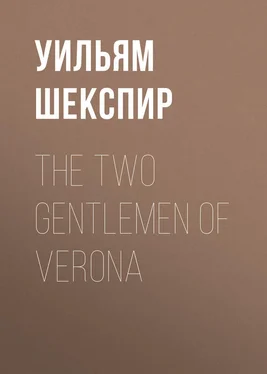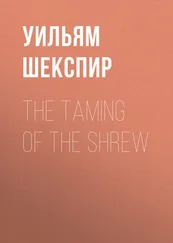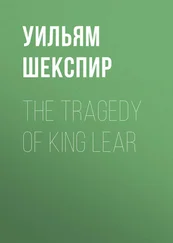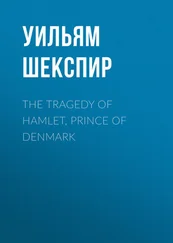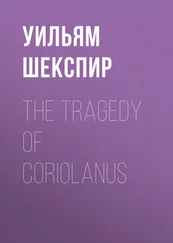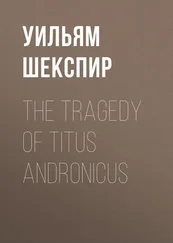Уильям Шекспир - The Two Gentlemen of Verona
Здесь есть возможность читать онлайн «Уильям Шекспир - The Two Gentlemen of Verona» — ознакомительный отрывок электронной книги совершенно бесплатно, а после прочтения отрывка купить полную версию. В некоторых случаях можно слушать аудио, скачать через торрент в формате fb2 и присутствует краткое содержание. Жанр: Европейская старинная литература, Драматургия, foreign_dramaturgy, на английском языке. Описание произведения, (предисловие) а так же отзывы посетителей доступны на портале библиотеки ЛибКат.
- Название:The Two Gentlemen of Verona
- Автор:
- Жанр:
- Год:неизвестен
- ISBN:нет данных
- Рейтинг книги:4 / 5. Голосов: 1
-
Избранное:Добавить в избранное
- Отзывы:
-
Ваша оценка:
- 80
- 1
- 2
- 3
- 4
- 5
The Two Gentlemen of Verona: краткое содержание, описание и аннотация
Предлагаем к чтению аннотацию, описание, краткое содержание или предисловие (зависит от того, что написал сам автор книги «The Two Gentlemen of Verona»). Если вы не нашли необходимую информацию о книге — напишите в комментариях, мы постараемся отыскать её.
The Two Gentlemen of Verona — читать онлайн ознакомительный отрывок
Ниже представлен текст книги, разбитый по страницам. Система сохранения места последней прочитанной страницы, позволяет с удобством читать онлайн бесплатно книгу «The Two Gentlemen of Verona», без необходимости каждый раз заново искать на чём Вы остановились. Поставьте закладку, и сможете в любой момент перейти на страницу, на которой закончили чтение.
Интервал:
Закладка:
SCENE II. Verona. The garden Of JULIA'S house
Enter JULIA and LUCETTA
JULIA. But say, Lucetta, now we are alone,
Wouldst thou then counsel me to fall in love?
LUCETTA. Ay, madam; so you stumble not unheedfully.
JULIA. Of all the fair resort of gentlemen
That every day with parle encounter me,
In thy opinion which is worthiest love?
LUCETTA. Please you, repeat their names; I'll show my mind
According to my shallow simple skill.
JULIA. What think'st thou of the fair Sir Eglamour?
LUCETTA. As of a knight well-spoken, neat, and fine;
But, were I you, he never should be mine.
JULIA. What think'st thou of the rich Mercatio?
LUCETTA. Well of his wealth; but of himself, so so.
JULIA. What think'st thou of the gentle Proteus?
LUCETTA. Lord, Lord! to see what folly reigns in us!
JULIA. How now! what means this passion at his name?
LUCETTA. Pardon, dear madam; 'tis a passing shame
That I, unworthy body as I am,
Should censure thus on lovely gentlemen.
JULIA. Why not on Proteus, as of all the rest?
LUCETTA. Then thus: of many good I think him best.
JULIA. Your reason?
LUCETTA. I have no other but a woman's reason:
I think him so, because I think him so.
JULIA. And wouldst thou have me cast my love on him?
LUCETTA. Ay, if you thought your love not cast away.
JULIA. Why, he, of all the rest, hath never mov'd me.
LUCETTA. Yet he, of all the rest, I think, best loves ye.
JULIA. His little speaking shows his love but small.
LUCETTA. Fire that's closest kept burns most of all.
JULIA. They do not love that do not show their love.
LUCETTA. O, they love least that let men know their love.
JULIA. I would I knew his mind.
LUCETTA. Peruse this paper, madam.
JULIA. 'To Julia'– Say, from whom?
LUCETTA. That the contents will show.
JULIA. Say, say, who gave it thee?
LUCETTA. Sir Valentine's page; and sent, I think, from Proteus.
He would have given it you; but I, being in the way,
Did in your name receive it; pardon the fault, I pray.
JULIA. Now, by my modesty, a goodly broker!
Dare you presume to harbour wanton lines?
To whisper and conspire against my youth?
Now, trust me, 'tis an office of great worth,
And you an officer fit for the place.
There, take the paper; see it be return'd;
Or else return no more into my sight.
LUCETTA. To plead for love deserves more fee than hate.
JULIA. Will ye be gone?
LUCETTA. That you may ruminate. Exit
JULIA. And yet, I would I had o'erlook'd the letter.
It were a shame to call her back again,
And pray her to a fault for which I chid her.
What fool is she, that knows I am a maid
And would not force the letter to my view!
Since maids, in modesty, say 'No' to that
Which they would have the profferer construe 'Ay.'
Fie, fie, how wayward is this foolish love,
That like a testy babe will scratch the nurse,
And presently, all humbled, kiss the rod!
How churlishly I chid Lucetta hence,
When willingly I would have had her here!
How angerly I taught my brow to frown,
When inward joy enforc'd my heart to smile!
My penance is to call Lucetta back
And ask remission for my folly past.
What ho! Lucetta!
Re-enter LUCETTA
LUCETTA. What would your ladyship?
JULIA. Is't near dinner time?
LUCETTA. I would it were,
That you might kill your stomach on your meat
And not upon your maid.
JULIA. What is't that you took up so gingerly?
LUCETTA. Nothing.
JULIA. Why didst thou stoop then?
LUCETTA. To take a paper up that I let fall.
JULIA. And is that paper nothing?
LUCETTA. Nothing concerning me.
JULIA. Then let it lie for those that it concerns.
LUCETTA. Madam, it will not lie where it concerns,
Unless it have a false interpreter.
JULIA. Some love of yours hath writ to you in rhyme.
LUCETTA. That I might sing it, madam, to a tune.
Give me a note; your ladyship can set.
JULIA. As little by such toys as may be possible.
Best sing it to the tune of 'Light o' Love.'
LUCETTA. It is too heavy for so light a tune.
JULIA. Heavy! belike it hath some burden then.
LUCETTA. Ay; and melodious were it, would you sing it.
JULIA. And why not you?
LUCETTA. I cannot reach so high.
JULIA. Let's see your song. [LUCETTA withholds the letter]
How now, minion!
LUCETTA. Keep tune there still, so you will sing it out.
And yet methinks I do not like this tune.
JULIA. You do not!
LUCETTA. No, madam; 'tis too sharp.
JULIA. You, minion, are too saucy.
LUCETTA. Nay, now you are too flat
And mar the concord with too harsh a descant;
There wanteth but a mean to fill your song.
JULIA. The mean is drown'd with your unruly bass.
LUCETTA. Indeed, I bid the base for Proteus.
JULIA. This babble shall not henceforth trouble me.
Here is a coil with protestation! [Tears the letter]
Go, get you gone; and let the papers lie.
You would be fing'ring them, to anger me.
LUCETTA. She makes it strange; but she would be best pleas'd
To be so ang'red with another letter. Exit
JULIA. Nay, would I were so ang'red with the same!
O hateful hands, to tear such loving words!
Injurious wasps, to feed on such sweet honey
And kill the bees that yield it with your stings!
I'll kiss each several paper for amends.
Look, here is writ 'kind Julia.' Unkind Julia,
As in revenge of thy ingratitude,
I throw thy name against the bruising stones,
Trampling contemptuously on thy disdain.
And here is writ 'love-wounded Proteus.'
Poor wounded name! my bosom,,as a bed,
Shall lodge thee till thy wound be throughly heal'd;
And thus I search it with a sovereign kiss.
But twice or thrice was 'Proteus' written down.
Be calm, good wind, blow not a word away
Till I have found each letter in the letter-
Except mine own name; that some whirlwind bear
Unto a ragged, fearful, hanging rock,
And throw it thence into the raging sea.
Lo, here in one line is his name twice writ:
'Poor forlorn Proteus, passionate Proteus,
To the sweet Julia.' That I'll tear away;
And yet I will not, sith so prettily
He couples it to his complaining names.
Thus will I fold them one upon another;
Now kiss, embrace, contend, do what you will.
Re-enter LUCETTA
LUCETTA. Madam,
Dinner is ready, and your father stays.
JULIA. Well, let us go.
LUCETTA. What, shall these papers lie like tell-tales here?
JULIA. If you respect them, best to take them up.
LUCETTA. Nay, I was taken up for laying them down;
Yet here they shall not lie for catching cold.
JULIA. I see you have a month's mind to them.
LUCETTA. Ay, madam, you may say what sights you see;
I see things too, although you judge I wink.
JULIA. Come, come; will't please you go? Exeunt
SCENE III. Verona. ANTONIO'S house
Enter ANTONIO and PANTHINO
ANTONIO. Tell me, Panthino, what sad talk was that
Wherewith my brother held you in the cloister?
PANTHINO. 'Twas of his nephew Proteus, your son.
ANTONIO. Why, what of him?
PANTHINO. He wond'red that your lordship
Would suffer him to spend his youth at home,
While other men, of slender reputation,
Put forth their sons to seek preferment out:
Some to the wars, to try their fortune there;
Some to discover islands far away;
Some to the studious universities.
For any, or for all these exercises,
He said that Proteus, your son, was meet;
And did request me to importune you
To let him spend his time no more at home,
Which would be great impeachment to his age,
In having known no travel in his youth.
ANTONIO. Nor need'st thou much importune me to that
Whereon this month I have been hammering.
I have consider'd well his loss of time,
And how he cannot be a perfect man,
Not being tried and tutor'd in the world:
Experience is by industry achiev'd,
And perfected by the swift course of time.
Then tell me whither were I best to send him.
PANTHINO. I think your lordship is not ignorant
How his companion, youthful Valentine,
Attends the Emperor in his royal court.
ANTONIO. I know it well.
PANTHINO. 'Twere good, I think, your lordship sent him thither:
There shall he practise tilts and tournaments,
Hear sweet discourse, converse with noblemen,
And be in eye of every exercise
Worthy his youth and nobleness of birth.
ANTONIO. I like thy counsel; well hast thou advis'd;
And that thou mayst perceive how well I like it,
The execution of it shall make known:
Even with the speediest expedition
I will dispatch him to the Emperor's court.
PANTHINO. To-morrow, may it please you, Don Alphonso
With other gentlemen of good esteem
Are journeying to salute the Emperor,
And to commend their service to his will.
ANTONIO. Good company; with them shall Proteus go.
Интервал:
Закладка:
Похожие книги на «The Two Gentlemen of Verona»
Представляем Вашему вниманию похожие книги на «The Two Gentlemen of Verona» списком для выбора. Мы отобрали схожую по названию и смыслу литературу в надежде предоставить читателям больше вариантов отыскать новые, интересные, ещё непрочитанные произведения.
Обсуждение, отзывы о книге «The Two Gentlemen of Verona» и просто собственные мнения читателей. Оставьте ваши комментарии, напишите, что Вы думаете о произведении, его смысле или главных героях. Укажите что конкретно понравилось, а что нет, и почему Вы так считаете.
